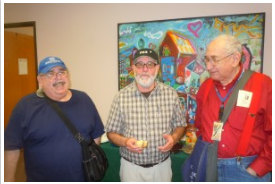History
PSU’s Institute on Aging (IOA) began a partnership with the World Health Organization (WHO) in 2006, when the IOA was invited to collaborate with the WHO in its Global Age-Friendly Cities project, aimed at helping cities prepare for rapid population aging and the parallel trend of urbanization. Portland was the only U.S. city among the 33 cities in this project, which involved gathering data through focus groups with older adults, caregivers of frail elders, and representatives of the public, business, and non-profit service sectors concerning age-friendly features and barriers in the city and suggestions for improvements.
The study examined eight domains, including: housing; transportation; outdoor spaces and buildings; employment and civic engagement; respect and social inclusion; social participation; health and community services; and communication and information. The outcome of the WHO’s project was a global guide that could be used by cities around the world to become better places to live for people of all ages and abilities, particularly older adults.
Following the completion of its multi-city research project and guide, the WHO created the WHO Global Network of Age-Friendly Cities. In 2011, Portland was one of nine cities from around the world selected as pioneer members of this network. IOA Director, Dr. Margaret Neal, explained an important misconception of joining the Network: “Membership does not mean that the community is currently age friendly; rather, it means that the community’s elected leadership has committed to actively work toward making the community a great place for people of all ages.” Network members pledge to conduct a baseline assessment of their community’s age friendliness (which Portland had already completed), create an action plan for enhancing the community’s age friendliness, implement the action plan, monitor progress, and make refinements. In 2014, Multnomah County also joined the Network. Today, 380 cities and communities and 11 affiliated programs in 37 different countries are members of the WHO Network; AARP, one of the 11 affiliated programs, coordinates the U.S. Network of Age-Friendly Communities.




